Here Are 2017's Biggest Video Game News Stories
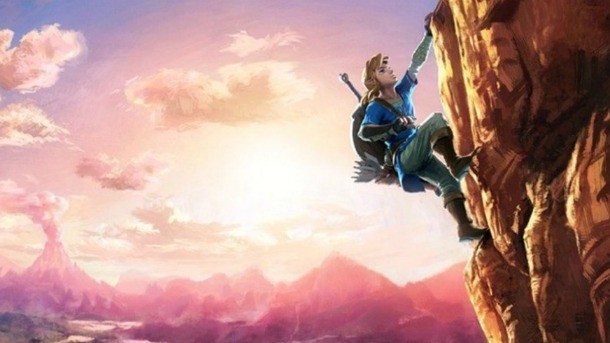
With the book now closed on 2017, it is hard to deny its roller-coaster nature. Some of the best games of the generation, some might argue any generation, came out within the last calendar year. The industry saw new hardware releases and incredible games, but also poor business practices and studio closures. It was a year of a lot of good and bad, but it was an eventful year all the same. Now that we're all on the other side of it, it seems like a good idea to take a look at those 365 days in news one more time and pick out the biggest stories.
January
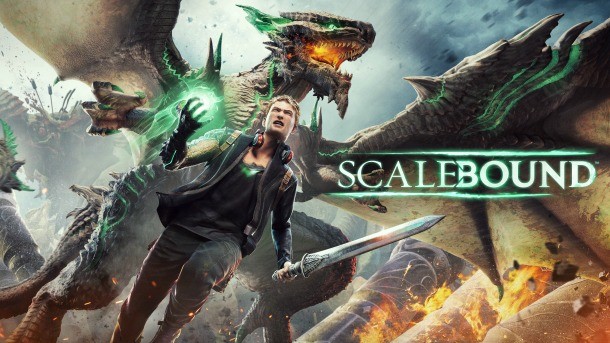
Microsoft Cancels Scalebound
What Happened: After a number of awkward showings for Platinum Games' and Hideki Kamiya's dragon-based action game, Microsoft lowered the guillotine and officially canceled Scalebound. Neither Microsoft nor Platinum answered questions about the title, it was one more title that disappeared from Microsoft's exclusive lineup and a major cancellation for the Japanese studio.
How It Worked Out: Despite the cancellation, Platinum appears to have ended the year on a high note. Nier: Automata exceeded expectations as a critical and commercial darling for a game of its type, Switch ports of Bayonetta and Bayonetta 2 were announced at The Game Awards in 2017, as well as a third game in the series. Scalebound's director Hideki Kamiya was promoted to vice president at Platinum and has taken to his infamous Twitter account in recent days to express optimism about getting back into game production in the new year. It is unknown if the work on Scalebound will ever be used.
Nintendo Presents The Switch
What Happened: After a late October 2016 reveal with a small advertisement, Nintendo laid its plans for the Wii U successor bare on a live stage at Tokyo Big Sight. Nintendo proffered the system with a $300 price tag, fairly expensive accessories, and announced that it would be launching with The Legend of Zelda: Breath of the Wild. At the time, reaction was mixed to Nintendo's plans, but Nintendo was bullish on a prediction of ten million units in the first year.
How It Worked Out: This week, Nintendo announced that the Switch is the fastest selling console in U.S. history, having announced a few weeks prior that the Switch hit its target goal of ten million units sold with months to spare. Despite a fairly weak early launch lineup aside from Game Informer's Game of the Year Breath of the Wild, Nintendo's output of games was strong throughout 2017 and capped the year off with high-selling Super Mario Odyssey.
February
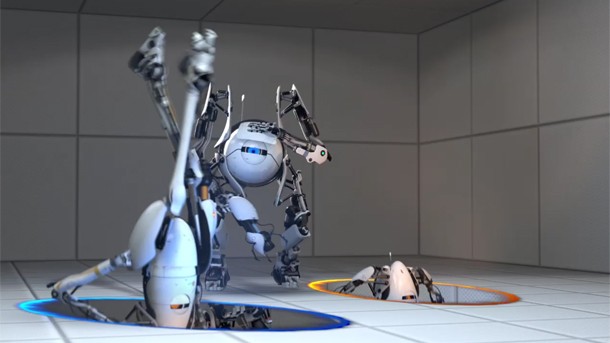
Eric Wolpaw Leaves Valve
What Happened: Famed Valve writer Erik Wolpaw confirmed he has left the company after writing games like the Half-Life 2, both Portal games, and Left 4 Dead. Wolpaw was working on Psychonauts 2 with Double Fine at the time, with some of his last credited work being Portal 2, the Team Fortress 2 comics, and Valve's VR collection The Lab.
How It Worked Out: Wolpaw has not said what he is working on since leaving Valve. The game he is working on, Psychonauts 2, has been delayed past 2018.
Irrational Games Rebrands As Ghost Story Games
What Happened: After a restructure in 2014 that lost most of the Irrational Games staff, the studio behind BioShock and BioShock: Infinite stayed quiet for three years. In 2017, Irrational rebranded as Ghost Story Games for a fresh start. The much smaller team was not ready to talk about what they were working on, but Levine was excited for the next project.
How It Worked Out: Ghost Story Games' title has not been revealed, but Levine said he is taking inspiration from Shadow of Mordor's Nemesis system. Later in the year, a job listing confirmed that the team is working on an immersive sim.
March
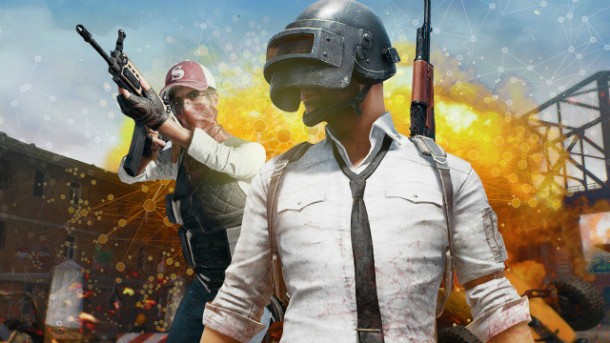
PlayerUnknown's Battlegrounds Releases In Early Access
What Happened: Out of nowhere, a standalone game that started as an Arma mod from Brendan "PlayerUnknown" Greene appeared on Steam, taking inspiration from the Japanese movie Battle Royale. In the game, 100 players land on an island and are tasked with hunting each other down to be declared the singular winner and verbal accolades relating to a chicken dinner.
How It Worked Out: PlayerUnknown's Battlegrounds has smashed sales milestone after sales milestone after sales milestone in 2017. It has also broke records for concurrent users on Steam, guaranteeing that there's always people to play against. Microsoft aggressively pursued the game as an exclusive and launched the Xbox One version of the game in December. The PC version ascended to version 1.0 in mid-December.
April
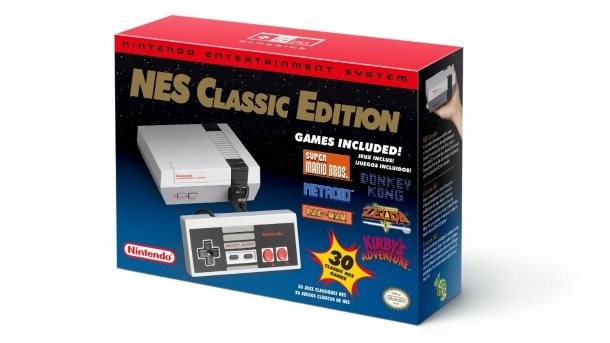
Nintendo Discontinues NES Classic
What Happened: Despite demand far outpacing minimal supply, Nintendo declared a time of death for the NES Classic, discontinuing production just a month after releasing the Switch.
How It Worked Out: As the Switch was already nearly impossible to find, announcing that the NES Classic would only be the domain of scalpers angered many. Confusingly, Nintendo announced in September that it would bring back the NES Classic in 2018, suggesting it was either caught off guard by demand or unprepared for the backlash.
May
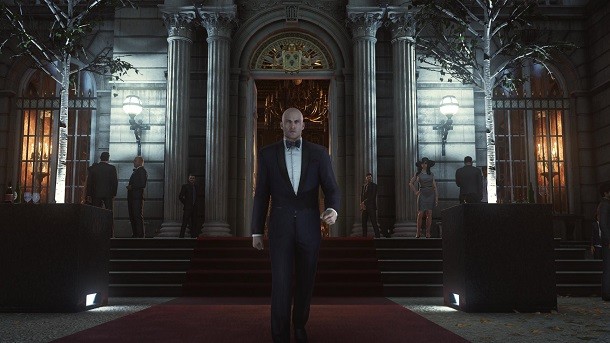
Square-Enix Splits From Hitman Developer IO Interactive
What Happened: At the end of its 2017 financial year, Square-Enix made the determination to divest from Hitman's developer IO Interactive. The parent company revealed that it was writing off IO's projects as a loss and selling the company off.
How It Worked Out: IO Interactive was able to buy themselves and the Hitman property from Square-Enix, though not without some layoffs. Near the end of the year, the developer re-released the episodic Hitman game with new content and promised a return of its elusive targets. The studio brokered a deal with Hulu for a Hitman TV show with talent from John Wick at the helm and is speaking optimistically about future plans for Hitman Season 2.
June
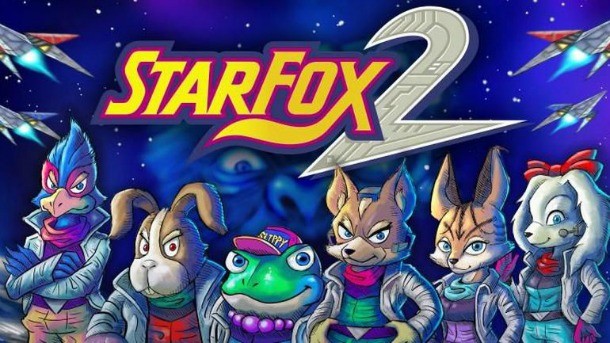
Nintendo Announces SNES Classic Edition With Star Fox 2
What Happened: Hot off the heels of ceasing production of the NES Classic, Nintendo swerved with the announcement of the SNES Classic, complete with an official release of the canceled Star Fox 2. The announcement shocked many, as Star Fox 2 was reportedly completely finished, but held back as it turned its focus to the 3D powered Nintendo 64.
How It Worked Out: Nintendo stoked the fires of product scarcity fears by engaging in months of short pre-order cycles for the SNES Classic before its release in September. The actual product was discovered to run on the exact same hardware as the NES Classic, but the reshelled console still sold extraordinarily well and Nintendo has kept up better with demand than anyone expected.
E3 Opens Its Doors To The Public For The First Time
What Happened: Announced in February, but officially happening in June, the Electronic Entertainment Expo sold tickets for public access to the show for the first time.
How It Worked Out: Reports of long lines and cramped spaces fluttered about the first day, but the administration mostly figured out how to deal with the flow of traffic on subsequent days. The Entertainment Software Association planning E3 was seemingly happy with the concept, as leaks suggest they will be opening E3 to the public again in 2018.
July
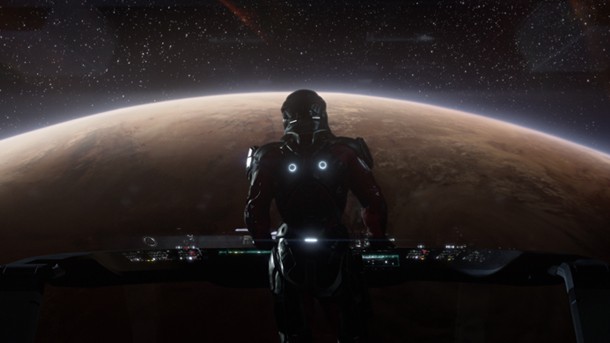
Casey Hudson Returns To BioWare As General Manager
What Happened: Longtime BioWare head Aaryn Flynn abruptly announced that he was leaving the company. Casey Hudson, the former shepherd of the Mass Effect series who left in 2014, was announced as Flynn's replacement. Many speculated that the managerial shakeup was the consequence of Mass Effect: Andromeda's poor critical and sales reception after releasing earlier in the year.
How It Worked Out: Hudson laid the groundwork for BioWare's current project, Anthem, before he left, so it is likely that he is focusing mostly on that. Almost immediately after the shakeup, Mass Effect: Andromeda's developers BioWare Montreal were incorporated into their neighbor studio EA Motive, who was working on Star Wars: Battlefront II's single-player campaign at the time.
Pokémon Go Fest Is Huge Disaster
What Happened: Ingress and Pokémon Go developers Niantic held a festival celebrating the augmented reality title, which was arguably the biggest game in the world at the time. The celebration brought together fans of the game to Chicago's Grant Park, a load that the developers were clearly unprepared to handle. The game almost immediately broke for all attendees, who were unable to catch any of the festival's exclusive Pokémon even as Niantic expanded the radius for event Pokémon to over two miles. Angry crowds chanted pleas to fix the game. Livestreams showed attendees throwing water bottles at Niantic staff and representatives as the limits of cell signal prevented anyone from playing the game.
How It Worked Out: It didn't! Niantic has made no real changes to the game, but did give attendees who spent time and money to attend refunds and credits for the game. Some attendees attempted to file a class action suit against Niantic, which is still being handled by the involved parties.
August
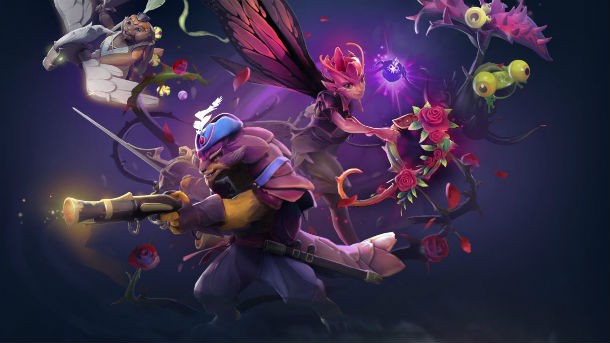
Valve Announces Dota 2 Card Game Artifact
What Happened: As The International 2017 was reaching its climax, event host Sean "Day9" Plott introduced the card game Artifact, which was met with loud sighs and groans of disappointment by Valve fans expecting more from the prospect of Valve developing a new game. As the game was detailed, however, fans came around and found the game's focus on lanes and creeps to at least differentiate itself from the Hearthstone-branded competition.
How It Worked Out: Valve has been quiet about the game since release, either out of concern for its initial reaction or its traditional silence concerning game development. Artifact is still intended for release in 2018.
Marc Laidlaw Outs Half-Life: Episode 3 Script
What Happened: Marc Laidlaw, a former scriptwriter at Valve who left in January 2016, posted a piece on his blog titled Epistle 3. It quickly became clear that Epistle 3 was an altered synopsis of what Half-Life 2: Episode 3 would have been had Valve developed the game using Laidlaw's script. The names were changed, but the main character being changed to "Gertie Fremont" was not exactly artful deception.
How It Worked Out: In a way, Laidlaw's leak provided closure for fans who have been holding out for Half-Life 3 or Episode 3 for years and years. It put the story to bed, as well as any hopes that Valve was going to do anything with said story. Laidlaw himself doesn't believe the script being unused necessarily means the game will never come out, citing Alien as an example of multiple scripts leading to a better final product.
September
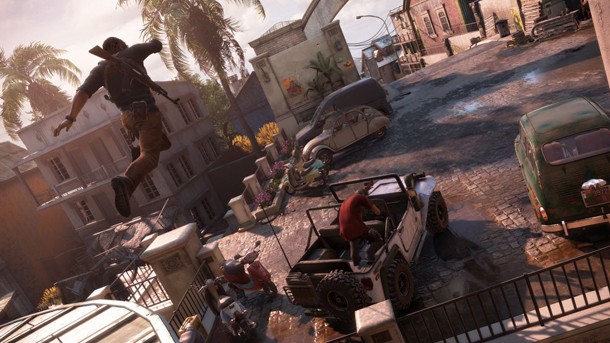
Bruce Straley Leaves Naughty Dog
What Happened: Bruce Straley, longtime Naughty Dog veteran best known for directing Uncharted 2 and The Last of Us, announced he was leaving the company. Prior to his official departure, Straley had been on extended leave following the release of Uncharted 4: A Thief's End, where he served as director.
How It Worked Out: While Straley has not announced any other projects since leaving Naughty Dog, he was listed in the credits for recent puzzle game Gorogoa as a Special Thanks. At PlayStation Experience 2017, the Last of Us Part II director Neil Druckmann said he believes the game to be about 40-60 percent complete.
October
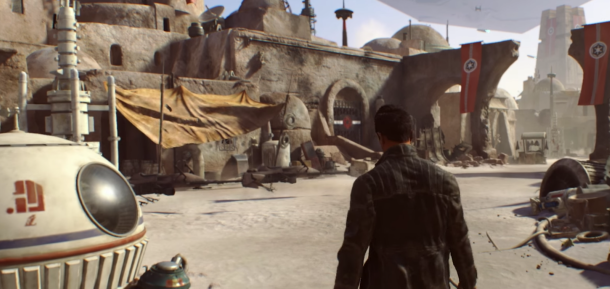
EA Shuts Down Visceral Games And Cancels Amy Hennig's Star Wars Project
What Happened: Very abruptly, mega-publisher Electronic Arts announced that they were shutting down the Redwood, California studio responsible for Dead Space, Battlefield: Hardline, and a still-in-production single-player Star Wars game announced a few years prior. EA executive vice president Patrick Söderlund wrote a blog post stating the project was shifting direction to a service-based model that will be handled by EA Vancouver. The move was made all the more shocking considering EA's previous recruitment of Amy Hennig, the Naughty Dog creative director known for some of its most lauded games who was leading the Star Wars project.
How It Worked Out: Reports suggested that EA's actual reasons for cancelling the game and closing the studio were related to the project failing to meet milestones, but it is difficult to know for sure beyond what Patrick Söderlund said in his post. The story was the first bit of major bad Star Wars video game news for the year and began to stir whispers of the publisher's competency with the license five years into its exclusive deal with Disney. EA hasn't said whether Hennig will move to EA Vancouver to keep participating in the project, but did explain that they were in talks with her about her next move.
November
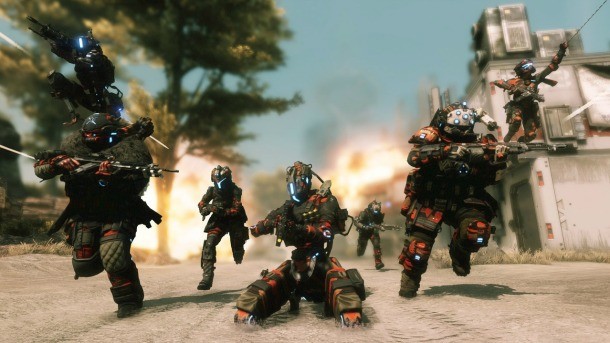
EA Acquires Titanfall Developer Respawn
What Happened: Shortly after closing down Visceral Games, EA announced tthe acquisition of Respawn Studios, developers of both Titanfall games. Respawn, a studio that famously formed after the Call of Duty creators' acrimonious split from Activision, had been operating independently as an EA partner. After Titanfall 2 released against EA's own Battlefield 1, the publisher had been assuring stockholders that the game eventually achieved financial success over time.
How It Worked Out: Respawn's partnership with Oculus on a game for the virtual reality helmet seems unaffected and the studio has confirmed that a new entry in the Titanfall series is in development. Additionally, EA tasked Respawn with a Star Wars project before the acquisition. It remains to be seen how the studio thrives under Electronic Arts, though there's little reason for unqualified optimism.
EA Faces Backlash Over Star Wars: Battlefront II "Pay-To-Win" Reputation
What Happened: Following the beta for Star Wars: Battlefront II, fans cajoled EA and developer DICE with concerns over the game's progression system, namely that lootboxes were tied to said progression a little too closely. In the weeks leading up to the game's November release, the furor started growing as more players got access to the game early through the EA Access subscription program. Despite repeated promises to tune the lootboxes, EA faced an unprecedented well of negative reaction to the progression system, partially spurred on by a Reddit post expressing bafflement at having to unlock Darth Vader after extended hours of gameplay. In combination with news that modes limited the amount of virtual currency players can earn a day, this lead to fans calling for a boycott of the game.
How It Worked Out: EA and DICE held an AMA, or Ask Me Anything, on Reddit's Battlefront II community board. The engagement only made things worse, as canned and vague answers angered fans further. As a response, EA cut the cost for various heroes by up to 75 percent, but fans were still upset by the fundamental system. Hours before the game's official launch, EA took the drastic step of eliminating the ability to buy the game's virtual currency to try and cull the reputation that the title is pay-to-win. However, the publisher also said that the microtransactions to buy crystal currency would return down the line, and then told shareholders that they did not expect it to harm revenue at all. With reports that Disney executives called the video game publisher to inquire why their beloved license was being negatively discussed, the reputation of Battlefront II was indelibly marked for the worse.
December
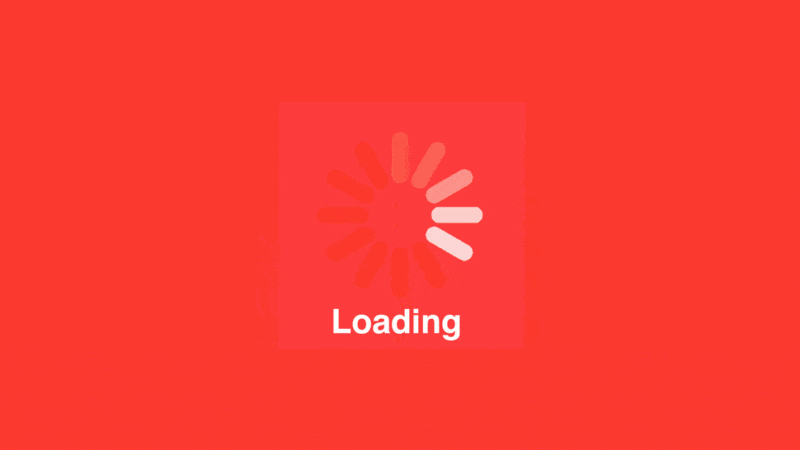
The FCC Moves To Gut Net Neutrality
What Happened: After signaling for the better part of a year, the FCC lead by Donald Trump-appointed chairman Ajit Pai voted to gut Net Neutrality rules. The regulations put in place prevented internet service providers from prioritizing different parts of the internet for any reason, whether it be profit or otherwise. Destabilizing those regulations allows ISPs to charge prices or bundle together websites and services in a way they previously were not allowed. Despite the regulations only being codified during Barack Obama's presidency, the threat of the establishing the rules had been omnipresent for telecommunications companies for decades prior and the FCC vote ended that threat, as well
How It Worked Out: The massive unpopularity of the move has done nothing to assuage the FCC or the Trump administration to reconsider this action. The decision will affect how people use the internet, use their phones, and even how they will play video games. While it is a complicated issue, there has been no case presented that offers a benefit to the consumer, merely dismissals that things will not fall apart as a best case scenario. This is unfortunately a story without end in 2017 and will reverberate through 2018 and beyond.

Get the Game Informer Print Edition!
Explore your favorite games in premium print format, delivered to your door.
- 10 issues per year
- Only $4.80 per issue
- Full digital magazine archive access
- Since 1991









